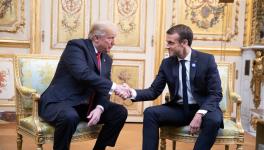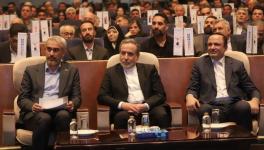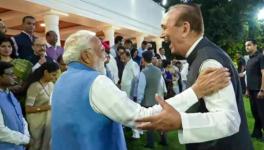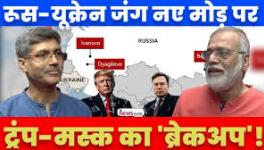EU Shelves Russia Dialogue
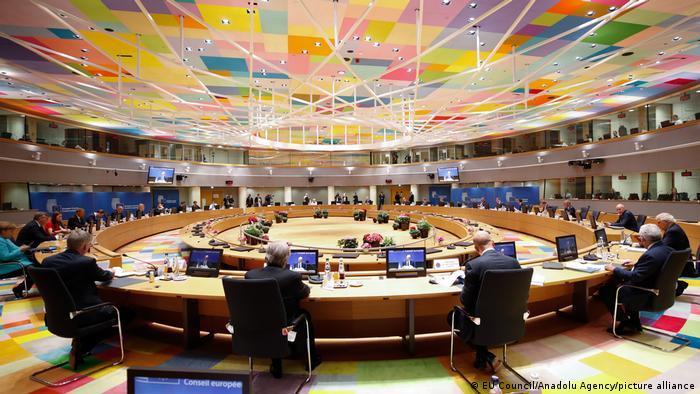
European Union summit in Brussels, Belgium, June 25, 2021
A thoughtful, far-sighted proposal by German Chancellor Angela Merkel and French President Emmanuel Macron calling for resumption of the European Union-Russia summit met sudden death at the EU’s summit in Brussels on Friday.
A consensus was impossible to reach and the exchanges revealed a strong undercurrent of opposition to any dialogue with Russia at the present juncture.
Before leaving for Brussels, Merkel had floated the proposal before the German parliament in Berlin on Thursday morning. “It is not enough for the US president to speak to the Russian president. I am very happy about that, but the European Union must also create different formats for discussion,” she said.
Citing wars in Libya and Syria, Merkel added: “We (EU) must define an agenda of common strategic interests, for instance on climate protection, but also in the areas of peace and security.”
Merkel had consulted Macron in advance, who promptly endorsed the proposal as he arrived in Brussels for the EU summit by Thursday evening. “Dialogue is necessary to stabilise the European continent, but it must be firm, as we will not give up any of our values or of our interests,” Macron said. He added, “We cannot remain on a purely defensive attitude to Russia, on a case-by-case basis, while, very legitimately, we saw a structured discussion unfold between President Biden and President Putin.”
Conflicts were mounting over the EU’s relations with Moscow in the recent months and feelings were running high in Brussels that foreign policy chief Josep Borrell was cold-shouldered during a visit to Moscow in February.
Lithuanian President Gitanas Nauseda took a shot at the French-German initiative, saying, “It would be like trying to talk to the bear to save some of the honey.” The Dutch Prime Minister Mark Rutte remarked acidly that he abhorred the very thought of sitting in the same room with Putin.
To be sure, Macron and Merkel are far too experienced in dealing with Russia not to know that one summit with Putin will not make a peaceful policy. Rather, their intention is to develop a foreign and military policy towards Russia that is more independent from Washington and thereby strengthen the EU’s hand in the emergent multipolar world order and create space for negotiations with Russia and China.
Merkel spoke up in the Bundestag from a European perspective that it is not enough to “let ourselves be debriefed about talks with the president of the United States,” but the EU must be “man enough and woman enough to put forward its point of view in direct talks”.
Strong words, as they come within a fortnight of the G7, NATO and EU-US summits where the fault lines in the transatlantic alliance could be barely papered over.
Make no mistake, the German and French approach to Russia as such is by no means ‘softening’. Both are involved in creating NATO’s footprints in the Black Sea. France is scheduled to participate in a massive Sea Breeze naval manoeuvres in the Black Sea for a fortnight starting from Monday, which is being hosted by the US and Ukraine and involves 5,000 troops, 32 ships and 40 aircraft from dozens of countries. Again, for the first time, Germany despatched two Eurofighters from Tactical Air Wing 71 “Richthofen” to Romania on Thursday, which will patrol Black Sea airspace together with British forces until July 9.
However, Macron and Merkel have kept a ‘big picture’ — EU’s strategic autonomy — when they mooted the proposal to resume the EU-Russia dialogue. They saw that the US president Joe Biden invited “killer” Putin to a summit without batting an eyelid, because that was precisely what was needed in America’s interests. They feel uneasy that the EU finds itself in a subaltern role.
Macron reacted sharply when the Franco-German proposal on dialogue with Russia was shot down. He hit out: “The aberration today is that we’re the toughest power vis-a-vis Russia, despite the fact they’re our neighbour. We saw President Biden meeting President Putin a few weeks ago. I told my friends around the table: he didn’t ask for your opinion. And you see them meeting together and that’s not shocking to you. We’re the odd ones.”
Macron added, “I have no obsession with a summit with the 27. I’ll be frank, I don’t need an EU summit to see Vladimir Putin. I saw him several times as president and I’ll continue to see him.”
The known unknown is whether Washington is pulling the strings to kill the Franco-German proposal. In fact, the most vociferous opposition to the proposal came from the countries of Eastern Europe that are known to be Washington’s proxies — especially Poland and the Baltic states.
Significantly, the German-French initiative for a summit with Putin appeared even as the EU leaders in Brussels were unveiling a joint communication on the EU’s relations with Russia.
The EU foreign policy chief Borrell visualises that “Under present circumstances, a renewed partnership between the European Union and Russia, allowing for closer cooperation, seems a distant prospect.” The European Commission President Ursula von der Leyen tends to agree: “The deliberate choices and aggressive actions of the Russian government over the last years have created a negative spiral.” (read more)
To be sure, the US cannot be in a forgiving mood after Merkel’s pushback at Washington over the Nord Stream 2 gas pipeline project. On relations with China too, Merkel seeks a balanced approach of constructive engagement, which Washington finds frustrating. And Merkel has now made relations with Russia another key template of the EU’s strategic autonomy.
But Merkel is not one to be flustered. After the setback on Friday, Merkel took her campaign to the public domain, telling a press conference, “The president of the US met for a serious talk with Vladimir Putin, which I did not have the impression was a reward for the Russian president. A sovereign EU, in my opinion, should also be able to represent the interests of the EU in such a similar conversation.”
The German opinion favours Merkel’s vision. Merkel’s likely successor as chancellor, Armin Laschet, in an interview with the FT last week, also called for Russia to be brought out of the cold, saying the West must try to “establish a sensible relationship” with Moscow. “Ignoring Russia has served neither our nor the US’ interests.”
But the bottom line is that the German-French initiative has caused a divide within the EU, with East European and Baltic countries that are closer geographically to Russia being wary of any loosening of the EU’s approach to Moscow. Equally, the German-French initiative will alarm Ukraine, Georgia and Moldova in Russia’s ‘near abroad’.
Simply put, the Franco-German proposal has upset the countries most worried about Moscow. The spectre that is haunting them would be that an EU invitation to Putin at this juncture may soften the bloc’s approach with Moscow, which would inevitably lead to fatigue with Russian sanctions.
This means that the bloc will substantially shelve the Franco-German idea for the time being. Meanwhile, the statement (paragraphs 25-34) issued after Friday’s summit has called on the European Commission and Borrell “to present options for additional restrictive measures, including economic sanctions”.
Also read: How a Congressman Took on US Blockade Against Venezuela
Get the latest reports & analysis with people's perspective on Protests, movements & deep analytical videos, discussions of the current affairs in your Telegram app. Subscribe to NewsClick's Telegram channel & get Real-Time updates on stories, as they get published on our website.











